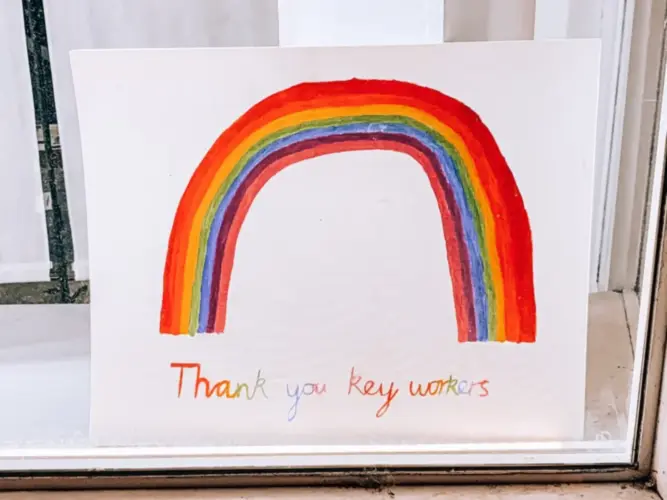
21 Days of Paid Sick Leave: A Feminist Issue
As Canada and the world adapts to a “new normal,” we’re grappling with the ways that the COVID-19 pandemic has worsened economic precarity and made inequality increasingly visible.
The economic fallout of the pandemic is undeniable. Small businesses are struggling or have been forced to close, even tech behemoths have laid off thousands, increasingly more renters are worrying about the first of the month, and more than seven million people have received the Canada Emergency Response Benefit (CERB). Those who have been hit the hardest are also those who were most marginalized prior to the pandemic: newcomers, disabled people, the queer community, women, the working class, trans people, Indigenous people, and those living at the intersections of these identities.
While the CERB has been an important and necessary emergency measure, it’s far from perfect. And there’s still a lot of work to be done in ensuring economic security for all as we continue to navigate the impacts of COVID-19 and imagine a post-pandemic future.
One federal government initiative that could make a difference for many people is guaranteeing 10 days of paid sick leave per year for everyone. At time of writing, it’s unclear exactly if and how this would be implemented, as sick leave policies are decided by each province and territory. Worker’s rights groups such as the BC Federation of Labour have advocated for paid sick leave for a long time, but the context of COVID-19 has added even more urgency to these calls.
This includes workers who provide the essential services that have kept BC running while others worked from home: caregivers, cashiers, and cleaning and sanitation workers. The majority of workers in these sectors are women, and many racialized women—such as Black women in caregiving work and Filipina migrant workers in essential sectors—are facing unique challenges.
When public health officials ordered those showing symptoms of cough and fever to stay home from work to flatten the curve, many workers were put in a tough position. If they were feeling unwell, workers faced the difficult decision of putting themselves and others at risk and being able to make rent or purchase essentials like groceries.
The BC Employment Standards Act (ESA) does not guarantee paid sick leave as a right. The ESA offers workers only three unpaid days of sick leave per year, and less than half of workers in BC have access to paid sick leave.
What’s more, the uneven access to paid sick leave isn’t randomly distributed. Workers in precarious employment arrangements—those who are low-income, part-time, or who work on-call — are the least likely to have paid sick days. This includes workers who provide the essential services that have kept BC running while others worked from home: caregivers, cashiers, and cleaning and sanitation workers. The majority of workers in these sectors are women, and many racialized women—such as Black women in caregiving work and Filipina migrant workers in essential sectors—are facing unique challenges.
Even prior to the pandemic, BC workers were forced to make difficult decisions about their health and economic security. We discuss the fact that BC law only makes room for unpaid sick leave during our Youth in the Workplace workshops and when asked to speak on employment rights via our Speakers Bureau, and we frequently hear from community that this policy has a very real and negative impact on their lives.
Making sure that every worker has 10 days of paid sick leave would be an important step forward. At minimum, it would provide a buffer that would help workers weather the storm. It would also be an improvement over the unpaid COVID-19 leave offered by the ESA. But for many, 10 days a year would not be enough. Considering that a case of COVID-19 can cause illness for several weeks to more than a month, 10 days would not necessarily be adequate to cushion a worker and their family in case of illness. And there are still six months left of 2020 — what happens if someone gets sick with another illness later this year?

That’s why West Coast LEAF supports advocacy for 21 days of paid sick leave. Twenty-one days of paid sick leave could account for the ongoing crisis as well as other health needs throughout the year, giving workers peace of mind and relieving them of the catch-22 between health and financial stability even after the pandemic is over.
It’s important to note that policy alone would likely not be enough. Thoughtful implementation and enforcement of any new paid sick leave policy would be crucial to ensure that workers are able to access the full extent of their rights. During our workshops and other public legal education programming, we hear from community that employers regularly violate certain provisions of the ESA, including refusing to give breaks or pay overtime, and asking workers to cover business expenses like damaged company property. Community members have also told us that the ESA as written does not always meet the needs of workers who have multiple jobs, who have precarious work, or who rely on the gig economy for their income.
Paid sick leave would have to be coupled with strengthened ESA enforcement mechanisms to work for those who most need them. These increased protections can include employer audits and unannounced inspections, and the shifting of the onus of proof from employees to employers.
There have been important conversations happening for years about workers’ rights and economic security that must continue as we consider how to help shape a future where justice and our feminist values are at the heart of society. The law can offer meaningful protection to workers only if it is well-crafted, and if employers follow it. In enacting and enforcing any new paid sick leave policies, the BC and federal government will need to make sure that the most vulnerable of workers will not be left behind.
Cecile Afable is West Coast LEAF’s Youth Workshop Coordinator. She’s grateful to workers and labour activists everywhere who advocate for policies that are rooted in care and affirmations of dignity.
Questions? Comments? blog@westcoastleaf.org
